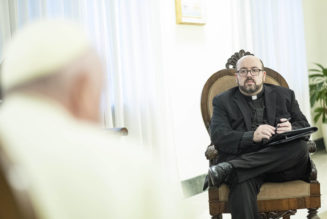
The legislation is the invention of a woman named Janet Porter, the leader of the group Faith2Action, who was the first to come up with the idea of using “fetal heartbeat” language in abortion legislation. She succeeded at getting the first state lawmaker to sponsor her signature bill in 2011, in Ohio. That year, the number of abortion and family planning restrictions skyrocketed, when at least 92 were enacted across the U.S., the highest number of restrictions the country had seen at that point. Many of them were six-week bans or, riffing on the rhetoric Porter had introduced, laws requiring pregnant people seeking abortions first to listen to the supposed heartbeat on an ultrasound machine. (An embryo does not even have a heart at six weeks, though the science hardly matters. These bills are engineered to incite extreme emotion—sympathy for an embryo and abhorrence for people seeking abortions. It’s a strategy that works.)
At times, the six-week bans have represented a division within the anti-abortion movement. Some conservatives saw them as being too overt in their violation of Roe and therefore a betrayal of the incrementalist approach the movement’s leaders had honed over decades. In 2011, after the first “heartbeat” ban was introduced in Ohio, The New York Times covered it as causing a “split” among conservatives: “Now many activists and evangelical Christian groups are pressing for an all-out legal assault on Roe. v. Wade in the hope—others call it a reckless dream—that the Supreme Court is ready to consider a radical change in the ruling.” The divide persisted for years: In 2016 and 2018, Kasich, a staunchly anti-abortion Republican, ultimately vetoed the six-week bans sent to his desk; both times, he called them them “contrary” to the law under Roe.
When state legislatures first began introducing the bans, many abortion rights supporters were also dismissive of them: “It was such a complete dog and pony show,” Stephanie Craddock Sherwood, a former Planned Parenthood organizer, recalled in a 2019 interview with The Nation. “I was like, ‘There’s no way this will ever pass, because it’s so ridiculous.’” And it has been conventional wisdom—among both pro- and anti-abortion activists—that if the Supreme Court took up an abortion case with the intention of overturning Roe, its content would have to be more understated. Up until last week, reproductive rights advocates and experts had speculated that justices might pick a law having to do with abortions later in pregnancy or a Down syndrome abortion law, which exploits the principles of the disability rights movement to restrict the procedure.
Porter, though, maintained faith in the strategy. In 2012, she described “heartbeat” legislation as “crafted with the Supreme Court in mind.” She accused her critics, particularly those in the anti-abortion movement, of a lack of vision and ambition. “Those who say the bill is ‘unconstitutional’ fail to realize that it is Roe v. Wade that is unconstitutional,” she wrote, “and the only way to reverse it is with a challenge.”
Join Our Telegram Group : Salvation & Prosperity







